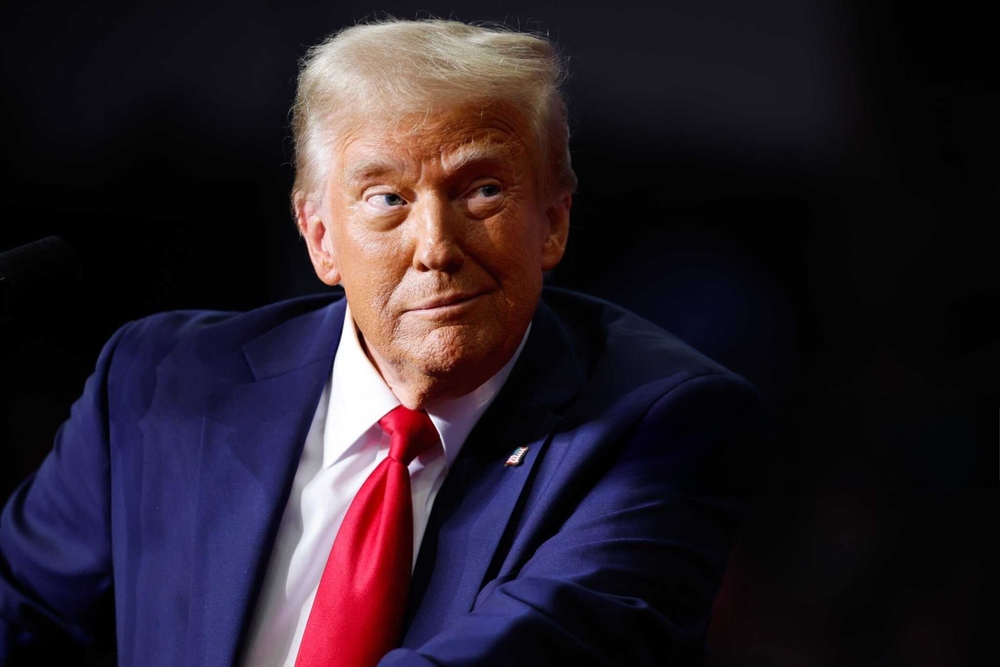President Donald Trump’s tariff strategy shifts U.S. policy, blending economic tactics with diplomatic pressure. This tariff strategy reshapes U.S.-China relations and global diplomacy, sparking economic concerns and currency fluctuations.
Economic Leverage and Political Strategy
President Trump has announced a potential 25% tariff on imports from Canada and Mexico, set to take effect on February 1. This move follows a pattern of strategically using tariffs for economic purposes and as leverage in international negotiations. Trump’s approach aims to address ongoing trade imbalances and undocumented immigration issues, extending the role of tariffs into the realm of foreign policy and national security.
Trump’s China trade war plan keeps markets guessing
— Indo-Pacific News – Geo-Politics & Defense (@IndoPac_Info) January 24, 2025
Trump had promised immediate 60% tariffs as the centerpiece of a “shock-and-awe” trade war, but now China might suffer a mere 10%.
Donald Trump hasn’t applied maximum tariff pressure on China, yet, leaving room for markets to… pic.twitter.com/pTv2FSOgMx
These tariffs are a negotiation tool with China, as indicated by Trump’s actions in his second term. Changes in tariff rates, such as a proposed 10% universal tariff on Chinese goods, aim to maintain pressure on China, a nation whose economy relies heavily on exports. Such strategies underscore Trump’s economic and diplomatic objectives to shift global supply chains and reduce Chinese influence.
Potential Global Implications
Experts warn that imposing tariffs could impact U.S. inflation and economic growth. Analysts suggest inflation could rise by 3% to 4% if a universal 10% tariff is applied. Besides impacting domestic prices, tariffs on Canada and Mexico could lead to retaliation, further affecting the trade dynamics. The Canadian Chamber of Commerce has highlighted the negative implications for consumers and businesses on both sides of the border.
— 🇺🇸 LouP (@AllyCapitalMgt) January 24, 2025
“As we have previously noted, trade policy will be transactional over the next four years with protectionist measures used to extort trade, immigration, and other political concessions.” – Gregory Daco.
Forex markets have reacted sharply to Trump’s tariff announcements, causing a significant drop in the currencies of Canada and Mexico against the US dollar. Such movements reflect the global economic anxiety surrounding tariff strategies and their broader impacts.
A Broader Diplomatic Initiative
Critics acknowledge that Trump’s tariffs could realign international supply chains, particularly away from China. While the direct revenue impact of these tariffs is limited, their strategic role in amplifying economic growth and articulating the U.S.’s stance in global negotiations is significant. The administration’s previous uses of tariff threats have led to concessions from other countries, as seen in Colombia’s compliance to avoid tariffs.
“a policy tool for not just economic policy, but also for foreign policy and national security.” – William Lee.
The broader implications of Trump’s tariff strategy extend to long-term diplomatic relations and economic growth patterns. The approach combines economic policy with diplomatic pressure to drive changes in U.S.-China relations and beyond, asserting America’s role in global negotiations.
Sources:
https://www.cbsnews.com/news/trump-tariffs-canada-mexico-china-feb-1/
https://www.theepochtimes.com/us/trump-refines-his-approach-to-tariffs-on-china-5799570

